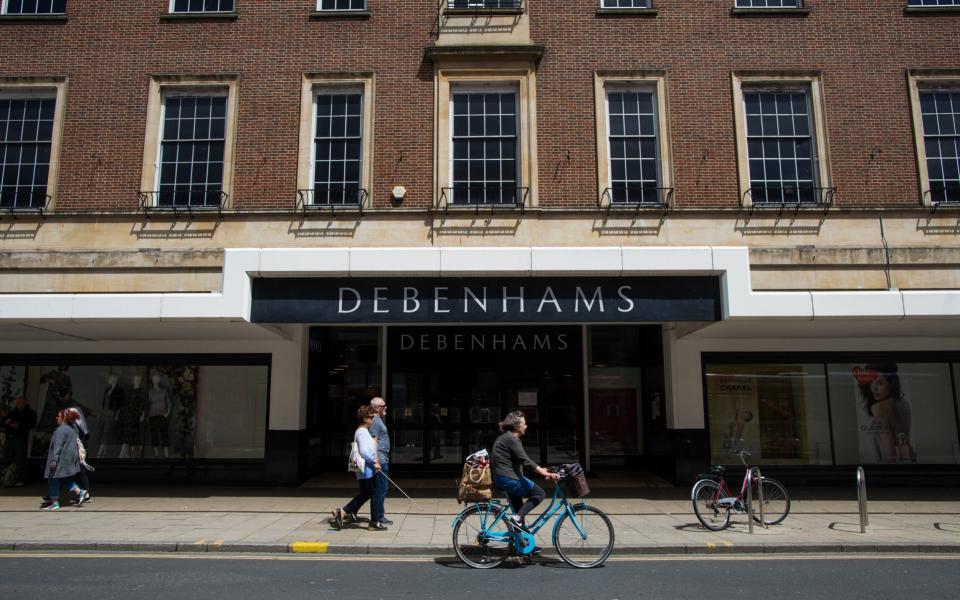Demise of Debenhams puts future of 60 town centres in jeopardy

The demise of Debenhams threatens to rip the heart out of 60 town and city centres in which the famous retailer plays a crucial role in attracting shoppers to the area.
The end of Debenhams' 242-year history could have a devastating knock-on effect on surrounding shops, particularly in the 60 locations where it is a standalone store considered an "anchor" by commercial real estate experts.
These include areas such as Norwich, Gloucester, Witney, Oxford and Lincoln.
All of Debenhams' 124 stores are set to close, with 12,000 jobs under threat. The retailer had been in administration since April.
Tej Parikh, chief economist at the Institute of Directors, warned that the collapse could dent wider confidence within retail.
Mr Parikh said: "As an anchor retailer, Debenhams' closure is likely to have a profound impact on businesses operating in its supply chain. The collapse of such a big retailer will also dent wider high street confidence at a time when it is already reeling from the effects of the pandemic and restrictions."
The department store chain's fortunes have soured since falling to a huge loss in 2018.
Adapting retail space for other purposes is also easier said than done, according to Will Lund, head of capital markets for Knight Frank.
Mr Lund said: "Some stores, particularly those within the M25 and in major city centres, may support conversion to residential uses but this just won’t be viable in some locations. Similarly, there is increased interest in re-purposing large retail space as workspace or co-working, which could be an attractive option in commuter towns given the shift to more agile working, but this won’t necessarily work everywhere.
"It is not a case of 'one-size fits all', and landlords will need to think carefully about local demand and how the repurposing of stores will support the wider vision for the town centre."
However, some experts see the collapse as an opportunity for the high street.
Barry Jessup, director at property developer First Base, said: "Ironically it was the over-expansion of retail chains that did the real damage to the high street. As a result we ended up with clone towns, with the same mix of brands which made it impossible for places to differentiate and meant local character was lost.
"The collapse of Debenhams presents an opportunity to accelerate moves to increase diversity on high streets if landlords and local authorities think creatively about how the stores can be reimagined for a range of uses, and activated throughout the daytime and evenings rather than traditional trading hours."
